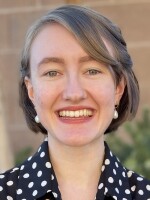For years in Las Vegas, the saying went something like this: "If you need specialized medical care, go to the airport," because the best healthcare can be found out of state.
That’s especially true for organ transplants. The more than 600 Nevadans in need of an organ can only access kidney transplants in state, and those are performed at a rate of around 150 per year at one hospital, University Medical Center.
Of all the organs recovered in state from both living and deceased donors, only 10% stay here; the other 90% of those organs are shipped out of Nevada to be transplanted. This all adds up to Nevada having the most limited access to transplant services in the West.
But, that’s slowly changing.
On April 25, Keck Medicine of the University of Southern California, a world-renowned academic medical center, opened a clinic for pre- and post-operative care for heart and liver transplant patients.
Though transplant recipients will still need to travel to Keck Hospital of USC in Los Angeles for the actual surgery, Dr. Jeffrey Kahn, a hepatologist and the medical director of USC’s liver transplant program, said this clinic is a step in the right direction towards bettering surgical outcomes among local patients.
“The major problem with liver transplantation in our region, which is called UNOS Region 5, is that the patients in our region have the highest disease severity at the time of their transplant,” Kahn said, blaming of the lack of liver transplant programs in the lower Mountain West. “If we can actually see the patients [at the Las Vegas clinic], before they get too ill we can actually avoid hospitalizations.”
Not enough specialists in Nevada
Transplants are one of the areas of specialized medical care that is severely lacking in Nevada. But it’s far from the only one.
In 2022, the state found 66% of those surveyed said they were unable to see some type of specialist in the previous 12 months. The top reason cited was that wait times were prohibitively long.
In this case, that’s caused by not enough doctors.
“The problem is that most doctors practice where they've done residences or fellowships,” said Dr. Marc J. Kahn, dean of UNLV’s Kirk Kerkorian School of Medicine. “And we are woefully short-supplied in residency and fellowship positions that are typically funded through the federal government, through the Center for Medicare and Medicaid Services.”
This leaves it up to the states to fill the gap in funding new residency programs, which is what Nevada is attempting to do.
In 2022, former Governor Steve Sisolak approved $8.5 million in funding for new residency slots in state.
With that money, Kahn said that UNLV hopes to add ophthalmology and neurology residencies, along with hematology medical oncology and rheumatology fellowships.
The leader of that last fellowship, rheumatologist and president of the Clark County Medical Society, Dr. Mitchell Forman, agreed that more physicians are needed to ease wait times.
He noted that physician shortages, beyond making it harder to see a specialist, also contribute to worsened care when patients do finally get an appointment.
“[In my practice] I increased the number of hours that I was in practice,” he said. “What I wouldn't do ever, is shorten the necessary time that I spend with patients.”
Forman said that, as he himself has gotten older and needed to seek specialist care himself, he’s seen the problems firsthand through the patient’s lens.
“I've gone to visits where I haven't been examined at all,” he said. “[My doctor] spent five minutes with me, sometimes on complex problems, and just referred me for procedures. That is not good medicine.”
Guests: Jeffrey Kahn, hepatologist and medical director, USC’s liver transplant program; Marc J. Kahn, hematologist and dean, Kirk Kerkorian School of Medicine at UNLV; Mitchell Forman, rheumatologist and president, Clark County Medical Society










